Farmers of Chui and Issyk-Kul regions of Kyrgyzstan exchanged experience on water-saving technologies for agricultural crops and cultivation organic fruits and berries.
Farmers - members of the pilot Water Users Association of the Alamudun district of the Chui region participated in a study tour to Jeti -Oguz and Tup districts of the Issyk-Kul region from 1-3 August 2024. Specialists of the Ministry of Water Resources, Agriculture and Processing Industry of the Kyrgyz Republic also joined the tour.
The branch of the Regional Environmental Centre for Central Asia (CAREC) in Kyrgyzstan organized the study field visits under the regional project “Increasing economic independence and improving the status of women in Central Asia through access to irrigation water and infrastructure.” The project is being implemented by CAREC with the financial support of the international Coca-Cola Foundation and covers 3 Central Asian countries: Kazakhstan, Kyrgyzstan and Tajikistan.
The participants of the study tour attended the agricultural cooperative “Tosor Organik” (For reference, produces fruit purees, juices and drying of apricots) in the Jeti-Oguz district of the Issyk-Kul region. Its head, Talant Bazarkulov, told the story of the creation and development of the agricultural cooperative, including the difficulties and problems of the production process, loans financed by state banks, support from donor organizations, the Ministry of Water Resources, Agriculture and Processing Industry of the KR, and local authorities.
The farmers mainly asked questions regarding finance, provision of raw materials, local and international requirements for standards for the production of finished products and their sale.
They visited production workshops, where farmers saw the process of producing fruit purees, juices, and drying apricots and learnt production technology.
As the Director of CAREC branch in KR, Kuban Matraimov, noted, a few farmers became interested and expressed the opinion that they would like to organize such production in the Alamudun district of Chui region.
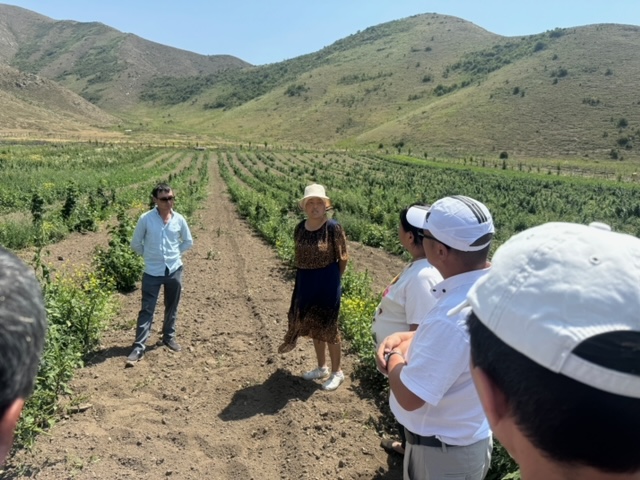
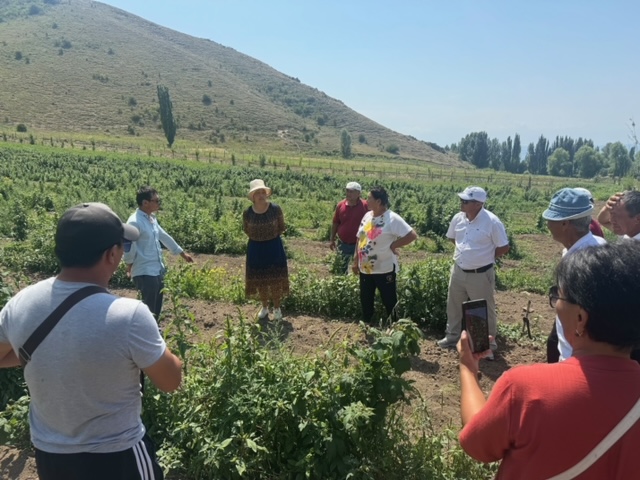
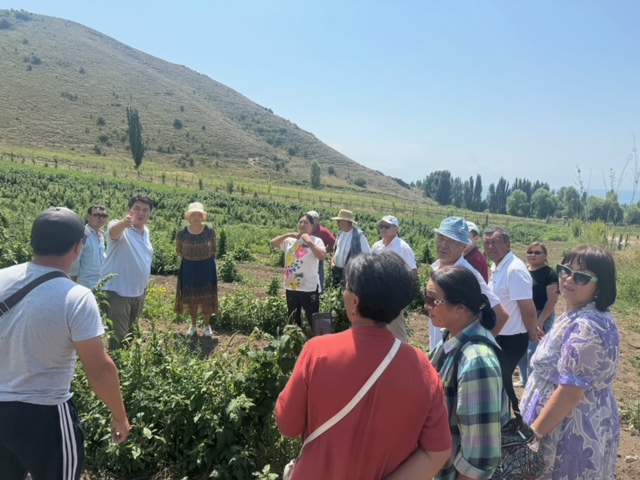
The next part of the trip was Uzak Group LLC, a fruit and berry nursery of farmer Zhyrgalbek Mazhitov, in the village of Saruu, Jeti-Oguz district. Where the farmer Zhyrgalbek Mazhitov himself spoke about the purpose of the fruit nursery and its structure. The high quality of seedlings presupposes their compliance with the standard for developmental vigor and varietal purity, the absence of viral diseases and dangerous pests. He also noted that fruit nurseries are located on flat areas, garden-suitable lands, where the soil should be loose and groundwater should not rise closer to the surface than 1.5 m. Farmer Zhyrgalbek Mazhitov shared his knowledge about fertilizers that are used for each type of seedlings. At the same site, he showed an installed and operating drip irrigation system, talked about the benefits of using this system, the positive impact on the rapid growth of seedlings, as well as problems that may arise and ways to solve them. It should be noted that at this time, all types of nursery seedlings are in great demand from local farmers. During the exchange tour, participants asked questions that interested them, to which they received detailed answers.
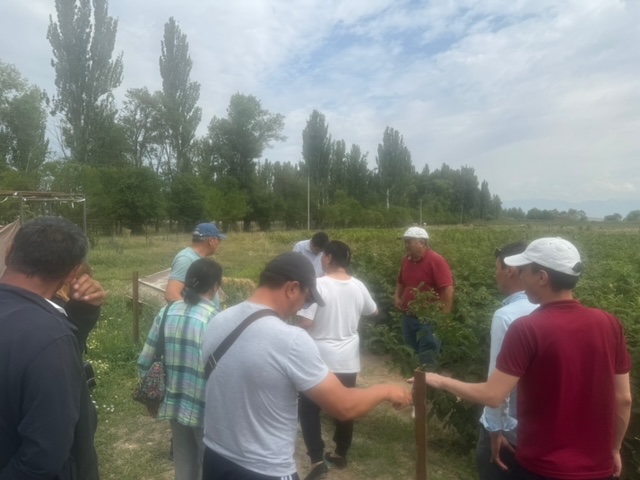
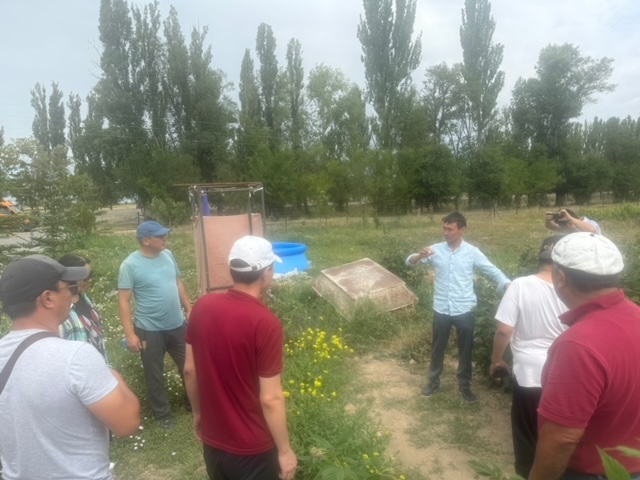
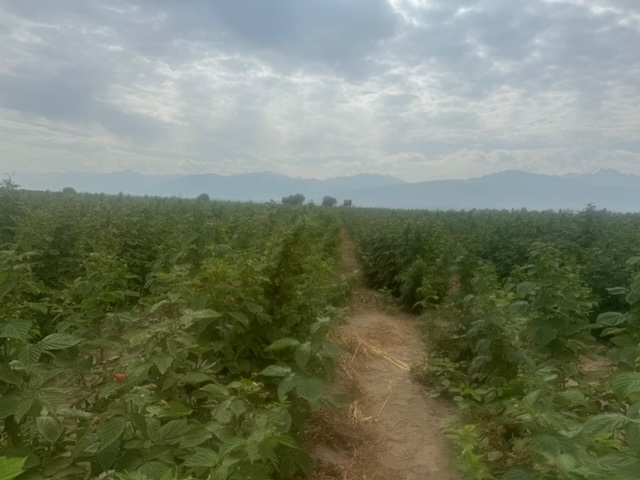
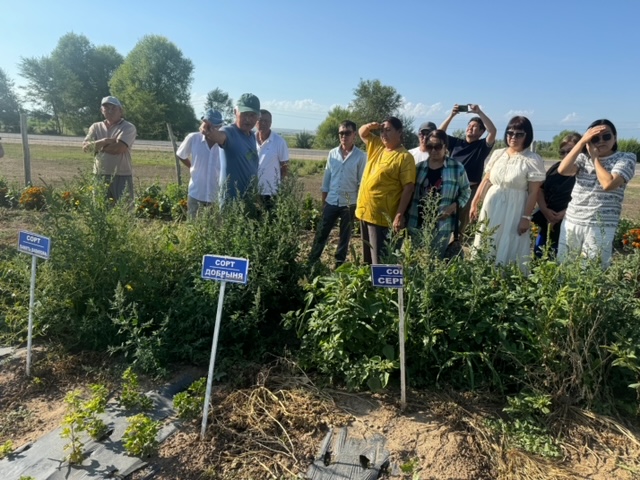
The farmers of Chui region visited the fruit and berry garden of farmer Zhyrgalbek Mazhitov in the village of Kara-Bulun, Jeti-Oguz district, Issyk-Kul region. The garden area is 84 hectares. The farmer told us when the garden was planted, what difficulties there were, and how the watering issue was resolved. Participants were interested in issues of initial financing, support for donor organizations, allocation of land for a garden, acquisition of seedlings, their types and quality, their yield and further sales and marketing, including issues of processing fruits and berries. He also talked about hydrogel, this is one of the types of water-saving technology that he uses on his land. He claims that the hydrogel retains huge amounts of water, as well as water-soluble fertilizers, thereby helping to hydrate plants in hot weather and replacing drip irrigation. When plant roots penetrate the hydrogel granules, from there they take as much water and fertilizers soluble in it as they need. The hydrogel does not affect the soil in any way. Even if the soil is dry, the water from the hydrogel granules helps the plants feed and grow normally. One application of hydrogel granules lasts for 5 years. During this time, it dries and swells many times without collapsing and maintaining its properties.
The farmer also showed the exchange tour participants - farmers - a nursery where he grows raspberry, strawberry and currant seedlings using water-saving technologies.
Farmers from the exchange tour expressed gratitude and noted that they received a large amount of useful information and practical experience, which they intend to use in their farms.
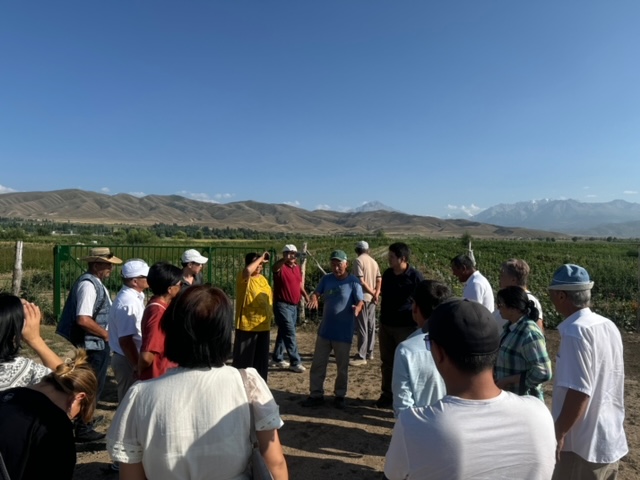
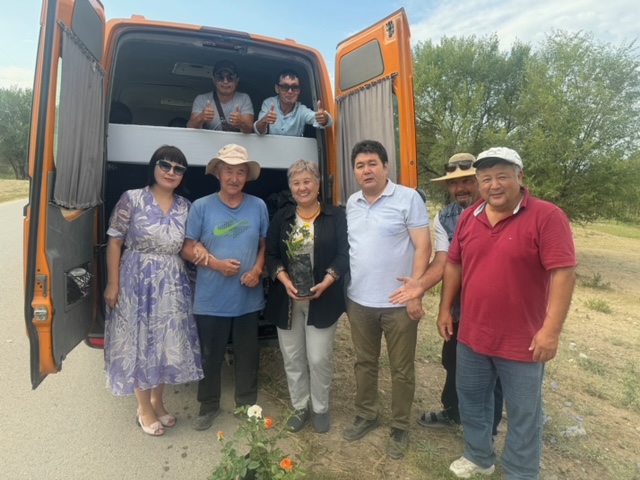
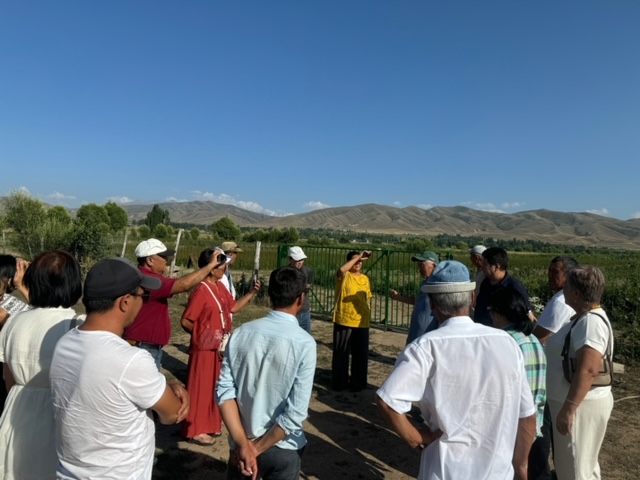
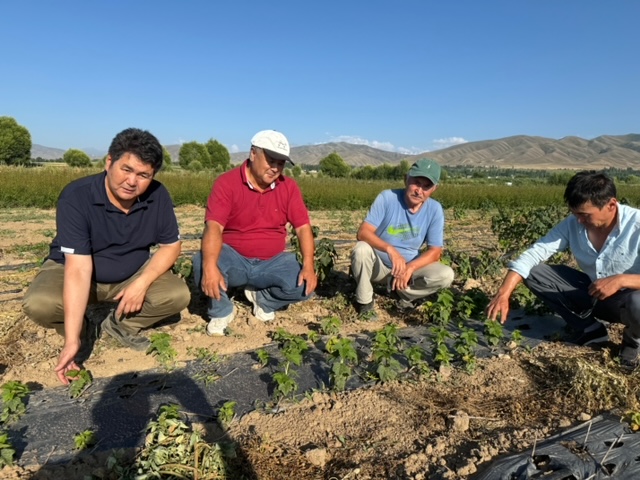
The farmers of Chui region visited the berry crop nursery of farmer Imankulov Bekzhan in the village of Zhany-Aryk, Ak-Suu district, Issyk-Kul region. The farmer spoke about the problems of developing a fruit nursery and ways to solve them, about the difficulties of selecting varieties of seedlings and caring for them, installing a drip irrigation system, about the problems financing. And he gave a tour of the nursery, talking about raspberry varieties, spoke well of the “Polana” and “Polka” varieties, since they ripen even at low temperatures, are fruitful from the end of July until the first frost, and have a very high yield, durability of sprouts and berries does not allow to rot and due to which they are well preserved on the bushes, have immunity to the most common diseases of these species, are harvested dry type, and are well transported. Farmers of the exchange tour received answers to all their questions.
Raspberry plantation of farmer Bilalov Zhanyl in the village of Orto-Oruk, Issyk-Kul district, Issyk-Kul region. She spoke about the creation and development of a raspberry plantation, and showed the benefits of a drip irrigation system and water-saving technologies using her example. She shared her experience of installing a drip system at the beginning, mistakes when choosing equipment and parts. She noted that she eliminated the use of agrochemicals, pesticides, antibiotics and completely switched to organic agriculture. This was facilitated by the Department of Processing Industry and Organic Agriculture of the Ministry of Water Resources, Agriculture and Processing Industry of the Kyrgyz Republic, to which she expressed great gratitude.
Farmer Bilalova Zhanyl is also actively involved in the development of ecotourism in the Issy-Kul region. She spoke about projects where agreements were concluded with representatives of foreign countries on ecotourism, about how to draw up a business plan to attract financing for the cultivation of fruits and berries, about participation in an agricultural fair with her harvest, which brought her good sales, experience and communication with farming communities from other regions. The farmers of the exchange tour were pleased with the knowledge and practical experience received from farmer Bilalov Zhanyl.
Additional information:
Kuban Matraimov, Director of CAREC Country Office for Kyrgyzstan, kmatraimov@carececo.org
